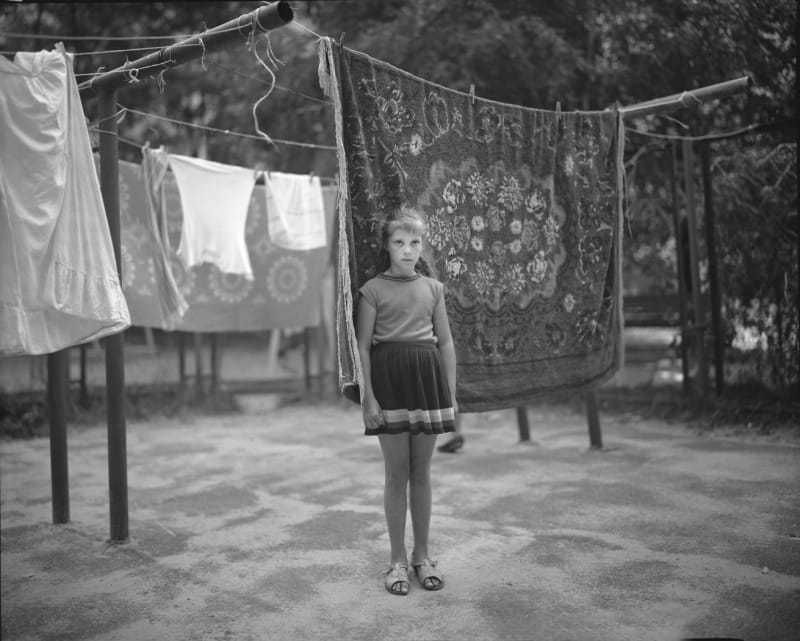Yossi Milo Gallery is pleased to announce From Where They Came, an exhibition of black and white photographs by Katherine Turczan. The exhibition opens Wednesday, May 23 and closes on Friday, July 20, 2001.
Katherine Turczan's portraits from the Ukraine are the photographer's response not only to a personal crisis but to a people in crisis. Faced with the diagnosis of both parents with Alzheimer's related dementia, Turczan set out in 1991 to photograph their homeland. Her arrival in the Ukraine coincided with the failed August Coup in Moscow and its reverberations in other Socialist Republics. The painful transition from communism to capitalism, transforming the country and her own heritage, was a constantly developing mirror of her own personal transition in life.
Traveling by bus and on foot with her 8″ × 10″ camera, Turczan made her way to the regions of the Ukraine where her parents had lived. Between 1991 and 1997, she made several trips, often for several months at a time, searching for a collective experience as a country experiences economic and political change. The result is a body of work loosely divided into three groups: the Nuns, the Children (from sanitariums for children of Chernobyl), and the Citizens. Turczan selected the three groups for the potential of these smaller communities to reflect the country's difficulties in adjusting to fundamental change.
The Nuns: The nuns that Turczan photographed are women seeking solace from religious bankruptcy and economic hardship by entering convents and monasteries. Funded by religious groups from the West, many convents are able to provide a level of security and comfort beyond the means of most Ukrainians. But like the new Ukraine itself, convents have become sites for social renewal and transformation. Some women are escaping prostitution and poverty, while others are revitalizing religious traditions and establishing new orders in hope of realizing moral and religious life lost during Soviet rule.
The Children: It was April of 1986 when the Chernobyl nuclear power plant suffered a meltdown, and its impact is still felt fifteen years later. Sanitariums were established for the children in the Kiev area to rest and to escape continuing exposure to radiation. Turczan visited her young cousins at one of these sanitariums and found humility, grace, and beauty in the face of illness.
The Citizens: Turczan took her camera to the streets and into homes to capture individual citizens of the country. Conducting interviews about political and cultural affairs during the sittings, Turczan not only rediscovered her heritage, she also created part of the dialogue that her sitters would answer in pose, expression, and posture, thereby providing an unforgettable meditation of the ways that political and personal upheaval resolve themselves through individual lives.
Born in 1965, Katherine Turczan received a BFA from the Cooper Union and a MFA from Yale University. She has received several grants, including the Bush Foundation Fellowship and the McKnight Fellowship, which have allowed her to travel extensively through Eastern Europe. Her work is in the permanent collections of several museums, including the Metropolitan Museum of Art, New York, the Brooklyn Museum of Art, Brooklyn, NY, and the Museum of Modern Art, New York.
